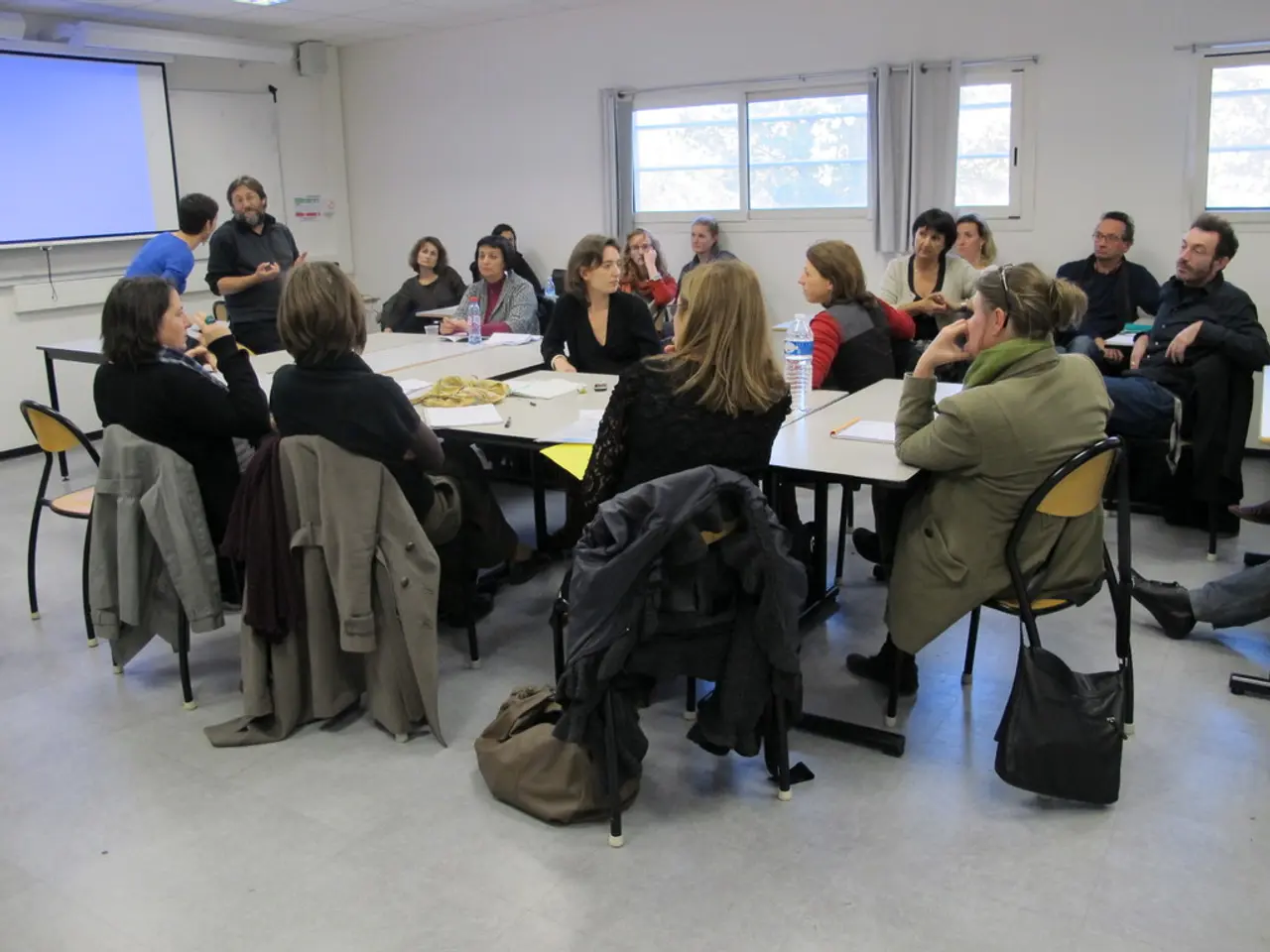Improving Relationships Through Romance Novel Reading: A Look at the Impact on Various Types of Bonds
The 'BookTok Boyfriend Challenge', a popular trend on TikTok, has recently captivated audiences, with over 1.3 million views of participants reenacting romantic scenes from their favourite novels with their partners. The challenge, which has mostly been participated in by women and their male partners, has sparked conversations about the portrayal and growing popularity of romance in books, particularly among Gen Z readers.
The surge in interest in romance books among Gen Z readers is not without merit. Romance novels often deal with themes that resonate closely with young readers, such as emotional disarray, romantic confusion, and personal growth, reflecting real Gen Z experiences. For instance, novels like Loner depict romantic confusion as part of the coming-of-age journey, mirroring the emotional reality for many young people today.
Moreover, romance and fantasy genres are particularly popular on platforms like BookTok, where their engaging and easy-to-dive-into narratives have encouraged many Gen Z readers to pick up books for pleasure. This has helped counter declining reading rates and fostered community and discussion around important topics like consent and mental health.
Modern romance in books often moves beyond idealized fairy tales to explore complex relationships, as in Alain de Botton’s The Course of Love, which challenges the "happily ever after" trope to portray the realities of long-term love. Other books focus on self-love, friendship, grief, and social issues through romantic or deeply emotional narratives, enriching readers’ understanding of love in various forms.
BookTok and similar communities provide space for young readers to discuss and engage with romances and related themes, which can be helpful for mental health and personal development. This social aspect encourages reading and broadens perspectives.
However, the popularity of romance books among Gen Z has also stirred debate. Some critics worry that romance books, especially those popular with younger Gen Z readers, might include themes or language deemed inappropriate, prompting calls for censorship or bans in certain regions or schools. This tension arises from differing views on sexual content, relationships, or identity portrayed in these books.
There are also concerns that some romance novels may perpetuate unrealistic or stereotypical views of relationships, which could influence young readers’ expectations negatively or trivialize complex emotional experiences. Critics sometimes argue that a strong focus on romance fiction might distract readers from more diverse or challenging literary works.
Varuna Srinivasan, a sex educator who writes a column called 'Doing It' that explores the connections between sex and emotions, is among those who voice concerns about the portrayal of relationships in romance novels. Srinivasan believes that while romance novels can provide enjoyable escapism, they should not be the only source of information about relationships for young readers.
Despite these concerns, the popularity of the 'BookTok Boyfriend Challenge' and the surge in romance book sales among Gen Z suggest that the genre continues to resonate with young readers. Nancy, a 24-year-old doctor from Mumbai, is one such enthusiast who disagrees with the idea that romance books create unrealistic portrayals of love. Nancy believes that knowing about romantic love in books helps her raise her standards when it comes to men.
Hannah, one participant in the 'BookTok Boyfriend Challenge', found the result of the challenge better than expected and felt flustered. Some participants of the challenge found the experience to be romantic and enjoyable.
In conclusion, the popularity of romance books among Gen Z is seen as a positive force for fostering reading, emotional exploration, and community, while concerns center on content suitability and the portrayal of relationships. The rise of platforms like BookTok has amplified both the appeal of romance genres and debates about their role and regulation in young people’s reading lives.
- The surge in the popularity of romance books among Gen Z readers can be attributed to their relatable themes, such as emotional disarray, romantic confusion, and personal growth, found in novels like Loner.
- The romance and fantasy genres, particularly on platforms like BookTok, have encouraged many Gen Z readers to explore books for pleasure, helping counter declining reading rates and fostering discussions around consent and mental health.








